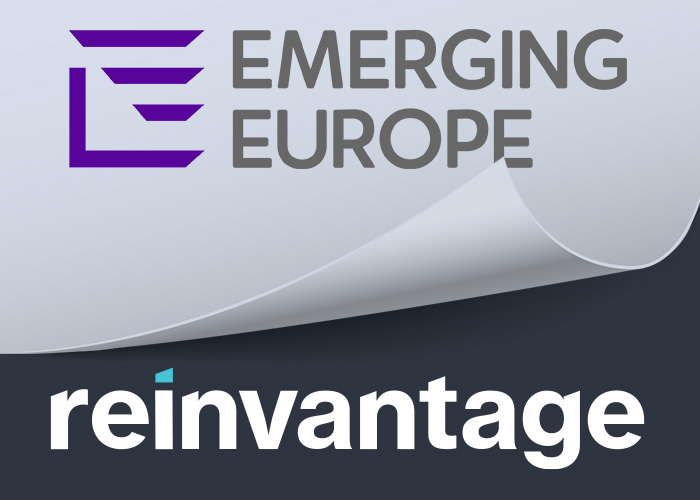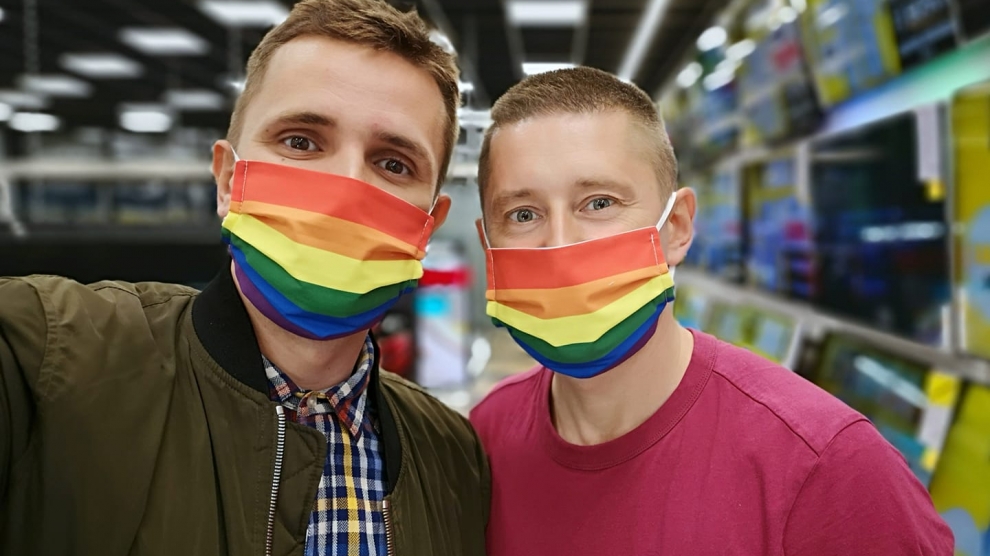LGBT minorities in Poland are consistently politicised and marginalised, with some right-wing politicians even going so far as to refer to them as “the plague”. So when a real plague came along, in the form of the coronavirus epidemic, activists Jakub Kwieciński and Dawid Mycek saw an opportunity.
The internet-famous couple decided to sew rainbow coloured face masks under lockdown, and then distribute to residents in their hometown of Gdańsk. Much to their surprise, the venture was a huge success and went viral in just a few days.
The couple’s video reached a staggering 2.4 million views on Facebook and caught the attention of the New York Times, Vogue Poland and Italian daily La Republica. “We are shocked that our rainbow masks made such a sensation. We would never expect a video about distributing masks to move the world so much,” says Mr Kwieciński.
Mr Kwieciński and Mr Mycek distributed over 300 masks, an impressive feat at any time, and particularly impressive when the city is eerily quiet. Almost everyone accepted the masks with gratitude and support.
“We did not know what to expect, because we know that the rainbow symbol evokes certain associations,” Mr Kwieciński continues, “some do not want to wear a rainbow, others are afraid they will be beaten for wearing it, but the reactions were surprisingly positive, we were probably met with only three unfavourable comments.”
In the uplifting video, which can be seen here, Gdansk residents were generally responsive to the project, one woman even exclaiming I love these colours! Why?, They are anti-political!
Jakub i Dawid, as they are known on social media, made the masks by hand and to produce the quantity and quality they did was no small feat.
“Sewing was not easy. Although we had a problem with the material, luckily we were able to find it, we had to design everything and measure ourselves,” says Mr Kwieciński. “We shared the work, Kuba ironed and folded the material properly and I sewed all day, we spent several evenings.” However, when their friends found out about their project, they were all too ready to lend a helping hand. And with the project’s dizzying triumphs – they will need it.
The project has skyrocketed to fame since their first video, with many fans trying to get their hands on the masks. The couple are continuing to make them, only now with a global audience cheering them on. This follows a broader trend to turn the now necessary item into something more. Many are now viewing masks as a blank canvas for expression. Slovakia’s president, Zuzana Čaputová, for example, has received praise for the stylish coordination of her face masks. Earlier this month, the Lithuanian capital of Vilnius went so far as to organise Mask Fashion Week.
Prague’s National Museum meanwhile is set to launch an exhibition of homemade face masks made to combat the coronavirus. Museum visitors will, naturally, be required to wear masks when they visit the exhibition.
This elevation of the masks not only encourages their use but reframes their context.
The beauty of the rainbow project is in its symbolism. “Without talking – everyone knows what’s going on. It’s a march of equality every day,” Jakub I Dawid wrote on Facebook. This effort to spread kindness and awareness acts as a weapon against the homophobia that many LGBT Poles experience frequently.
However, Mr Kwieciński recently told Vogue Poland that he still does not feel accepted in the country, and that he and his husband don’t often hold hands walking down the street. “However, we allow ourselves more than we would have nine years ago, sometimes we kiss and hug. Then, it would have been unthinkable.”
The couple married in Portugal in 2017 and have been a huge success in advocating for the Polish LGBT community, both online and on the street.
“Many people talk about us homosexuals as the ‘plague’. So we thought that if we help them protect themselves against the virus, they will change their minds. Maybe it’s naive, but if we can help, why not?”
—
Photo: Jakub I Dawid official Facebook page
—
Unlike many news and information platforms, Emerging Europe is free to read, and always will be. There is no paywall here. We are independent, not affiliated with nor representing any political party or business organisation. We want the very best for emerging Europe, nothing more, nothing less. Your support will help us continue to spread the word about this amazing region.
You can contribute here. Thank you.



Add Comment